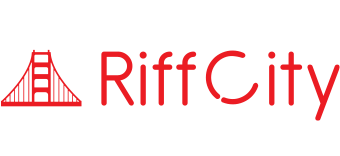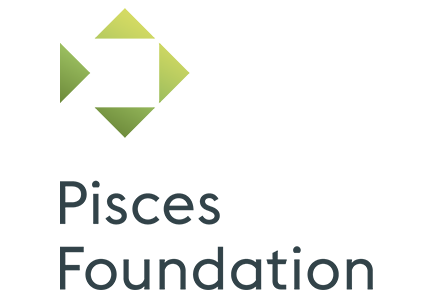Thrive Global: Tips From The Top: One On One With Gary Kovacs
Check out Accela in the article below!
By Adam Mendler
Thrive Global — October 27, 2021
Adam: Thanks again for taking the time to share your story and your advice. First things first, though, I am sure readers would love to learn more about you. What is something about you that would surprise people?
Gary: I’m a big team sports guy, and staying true to my Canadian roots, I love to play hockey. While “old guy hockey” might not be fun to watch, it’s a great outlet, and I find so many parallels in my interactions with my team and how they translate to the workplace.
Beyond the more obvious things like teaching teamwork and a competitive spirit, I think sports humanize people and encourage them to put their guards down. You have to lay it all out there, and at the same time, you can’t have too much personal pride.
Whether it’s missing a shot or a teammate cracking a joke at your expense, when your fellow teammates stop talking (or teasing), that’s when communication and connection breaks down, and that’s when you should be concerned. It’s very much the same way in a company leadership role—I may not always like every piece of feedback I hear, but it often helps Accela to do the best work for our customers, and pushes me to be a better leader. When I don’t hear much feedback, I know that’s when I need to go and seek it out.
Adam: How did you get here? What experiences, failures, setbacks or challenges have been most instrumental to your growth?
Gary: I joined Accela, which provides cloud-based solutions to streamline how government does business, as CEO in December 2018, after previously serving as CEO of AVG Technologies and Mozilla Firefox. What I find so special and unique about being a part of Accela, however, is that we’re leveraging cloud technology to help governments create stronger, more vibrant communities.
I often find that there is more to learn from my challenges than my successes. One time I learned from a setback was when our team was pursuing a significant account that I was leading the charge on. We were even considering launching a new solution that we thought would be the silver bullet for us to win it. And for a variety of reasons, we just never got there with the prospect, and we ultimately had to walk away. It was tough – it was a very visible pursuit, and it was hard to not feel like I let the team down, or it was all for nothing.
Eventually, a few members of the team who were pursuing the account with me mentioned they were still thinking about the strategy and solutions we had for that potential client, but they had a new approach they thought would work. And they were right – this approach now informs the overall foundation for Accela and how we look at our solutions across the board.
While I am excited we have this new approach, what impressed me the most was the tenacity and continued creativity of the team. It was a good reminder to me that we learn the most from our failures, but also that we need to lift each other up as a team to continue propelling our success forward too.
Adam: In your experience, what are the defining qualities of an effective leader? How can leaders and aspiring leaders take their leadership skills to the next level?
Gary: To me, the most important qualities to being a standout leader are the abilities to connect, provide clarity and inspiration. A CEO’s role is ultimately putting together human systems. Key to that is, of course, understanding people, connecting different skills and personalities, and the ongoing operations to make it all come together—with humans at the core. Being able to authentically connect and build relationships with people is critical in putting these human systems together in the most meaningful and impactful way.
Clarity also is critical to be an effective leader. Distilling larger goals into more manageable, bite-sized chunks can motivate your team as they work towards these and make progress. If there is confusion about priorities or an organization’s vision for the future, it can frustrate a team and hinder results.
Lastly, inspiration is important – but this needs to be authentic and genuine. Shallow words can only go so far, but if a leader is able to effectively inspire their team, they are able to build connections, create a sense of purpose to each person on the team, and maximize success.
Adam: What are your three best tips applicable to entrepreneurs, executives and civic leaders?
Gary: I feel very strongly that leaders need to be very clear about defining the foundation. This could include defining key responsibilities and philosophies, as well as general structures to work toward a goal. For example, if a team is going to lead a project or an organization for some time, there should be clarity around what authority they have and what kind of flexibility they have to go after their goals. This is also our approach with Accela’s solutions—we give communities the building blocks they need to respond to whatever challenges may come next and go after whatever their goals might be.
Trust is the foundation in an organization, and it’s the leader’s job to create it. There are many levels of trust, such as trusting each other with simple asks or being able to trust in our personal safety within a physical environment. And building on these levels is something I call level three trust, which I think is most important. Level three trust means that we can be vulnerable with each other. When you get to that point, you unlock the true power of a team, and with this power comes the ability to feel safe in taking risks or stretching yourself. The ability to build this level of trust is a character trait, and something I take very seriously when I interview potential employees. For me, it’s important to pay attention to the nuance if a candidate can be vulnerable and reveal parts of their whole self to me – not just their highlight reel. I’ve had to pass on some incredible candidates with fantastic resumes because I wasn’t sure if they could bring this level of trust, and I wasn’t willing to risk our team’s success on it.
Lastly, I think it’s critical to remember the importance that empowering and learning from your team has on being an effective leader. For the most part, I’ve found that teams (thankfully) don’t expect their CEO to know everything, but they do want them to be brave and authentic. So sometimes that means my job is to admit what I don’t know and turn to members of the team to help fill in the gaps in their areas of expertise. That’s why it’s so important to hire people who are brilliant in their specific field and engage them throughout any team challenge or process.
Adam: What is the single best piece of advice you have ever received?
Gary: I heard from a mentor early in my career a line that has stuck with me ever since, which is don’t argue the outcomes, argue the assumptions. You can get almost any outcome if you change the assumptions, but the question is, are the assumptions correct? That is where the debate needs to happen—around the assumptions.
Assumptions can include your ability to execute, the capabilities of the team, your financial position, an honest assessment of your market position, and many other factors. If you have a clear sense of these, and how they are changing, then the outcome that you create has the highest chance of being successful.
Adam: What is one thing everyone should do to pay it forward?
Gary: I have to say I’m not a big fan of the term ‘paying it forward’ because I think paying it forward ultimately comes down to paying it current and leading from that position, which is to say being authentic, being real, and being clear and honest. It’s about being the most authentic version of yourself so you can empower others to be their best selves, and share your talents to help others.
When you’re not focused on reading a situation or trying to deliver what you think you should or what people want to hear, you can instead have an engaging conversation that generates new ideas to overcome problems and align people. That’s the ultimate job of a leader, and of being a good human.
Adam: What are your hobbies and how have they shaped you as a leader?
Gary: My daughter recently went away to college, so I made it a priority to spend quite a bit of time with her before she left for school, and join her in whatever she had going on. It’s a unique experience when you’re able to really participate and engage with – as opposed to guide – your child, and it’s really fun because you do silly things and your kids just laugh at you.
It was a very meaningful time for me, and I also think it reminded me that as a leader we can’t take ourselves too seriously either, even at work. I think we need to remember to bring our whole selves with us wherever we go – even at the workplace – because when you feel comfortable showing the authentic side of yourself, we’re also empowered to do our best work, build the strongest teams, and create meaningful change in our companies and communities.


